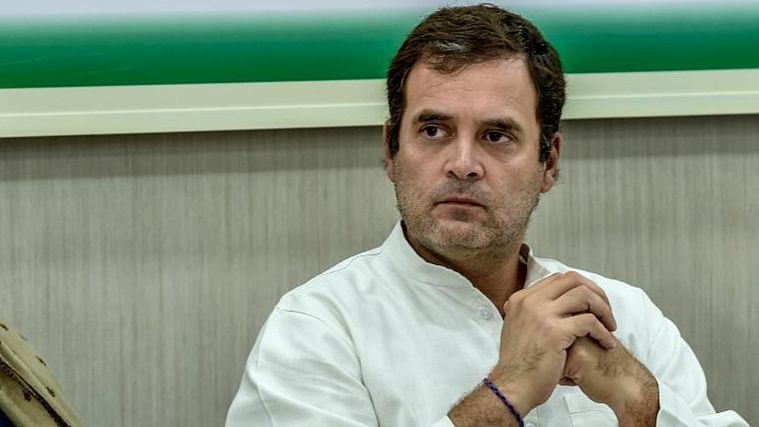Yesterday, the Modi government yet again showcased its ability of taking strong decisions in national interest, even as India decided to opt out of the RCEP deal. The Ministry of External Affairs said that India has decided not to join the RCEP because of unresolved issues and given the present circumstances, it would not be proper to join the RCEP. The Ministry made it clear that the decision has been taken in national interest. The proposed Free Trade Agreement included the ten ASEAN countries, along-with six of the regional bloc’s dialogue partners, viz. China, Japan, South Korea, India, Australia and New Zealand.
Before the decision of not joining the RCEP was taken, Congress leader Rahul Gandhi went rather overboard in his criticism of the Modi government over this issue. In his tweet, he said that “Make in India” has become “Buy from China”. He added, “Each year we import Rs. 6,000/ worth of goods from China for every Indian! A 100% increase since 2014. RCEP will flood India with cheap goods, resulting in millions of job losses & crippling the Indian economy.” His comments came at a time when PM Modi was in Bangkok for the RCEP negotiations and ensuring that national interest was safeguarded.
"Make in 🇮🇳" has become “Buy from 🇨🇳”.
Each year we import Rs. 6,000/ worth of goods from 🇨🇳 for every Indian! A 100% increase since 2014. #RCEP will flood India with cheap goods, resulting in millions of job losses & crippling the 🇮🇳 economy. https://t.co/4DqzARiL6D
— Rahul Gandhi (@RahulGandhi) November 4, 2019
Hours after Rahul Gandh’s bizarre remarks, the BJP also took to Twitter exposing his hypocrisy. In its stinging tweet against the Gandhi scion, it stated, “Dear @RahulGandhi, Seems meditation trip has woken you up to RCEP. Facts that will help your selective amnesia:
- UPA entered RCEP negotiations in 2012
- Trade deficit with China increased by 23 times from $1.9Bn in 2005 to $44.8Bn in 2014
- Now PM Modi is cleaning your mess.”
Dear @RahulGandhi,
Seems meditation trip has woken you up to RCEP. Facts that will help your selective amnesia:
1. UPA entered RCEP negotiations in 2012
2. Trade deficit with China increased by 23 times from $1.9Bn in 2005 to $44.8Bn in 2014
3. Now PM Modi is cleaning your mess. https://t.co/lkFwna78Xm— BJP (@BJP4India) November 4, 2019
It must be noted that it was also during the UPA era that India signed Free Trade Agreements (FTAs) with Japan, Malaysia and the ASEAN. In fact, India has a trade deficit with both Japan and Malaysia. According to an Economic Times report, India’s trade deficit with Japan increased to $7.9 billion in 2019. In fact, during the Congress led UPA era, India’s trade deficit with the RCEP nations went up by more than 11 times from $7 Billion in 2004 to $78 Billion in 2014. As such the Congress does not have much of a moral high ground to blame the Modi government for the situation that we are in. The UPA signed an FTA with the ASEAN in 2010 opening up 74% of India’s market to the ASEAN countries. Now, it is the Modi government which is cleaning the UPA-era mess as India and the ten ASEAN countries are in the process of re-examining the India-ASEAN Free Trade Agreement (FTA).
It must be noted that earlier the Congress chief had launched a tirade against the Modi government. She had said that signing the RCEP will result in “untold hardship” for farmers, shopkeepers and small enterprises. While addressing a meeting at the AICC headquarters, she said, “As economic decisions have not damaged the economy enough, it is now ready to deal a body blow to it by signing the Regional Comprehensive Economic Partnership Agreement (RCEP) – the regional free trade agreement of 16 Asian countries.” Commerce Minister Piyush Goyal had then reminded her that it was the UPA government which had joined the RCEP negotiations.
Rahul Gandhi who clearly does not even have a basic understanding of the RCEP negotiations, has gone totally delusional even as he led Congress’ bizarre campaign against the Modi government over the RCEP negotiations. It ought to be mentioned here that it was the Manmohan Singh government which decided to take part in the RCEP negotiations in 2012. In fact, the then PM Manmohan Singh had announced India’s full commitment towards the RCEP. Today, Rahul Gandhi is attacking the Modi government over the RCEP deal, when in fact it was his own party which has pushed India towards this Agreement. However, Rahul Gandhi who seems to have been enlightened by his recent meditation trip has chosen to blame the Modi government over the RCEP, rather than reflecting upon UPA’s blunders.
